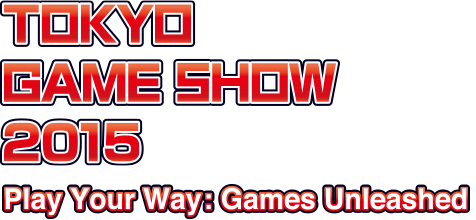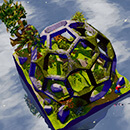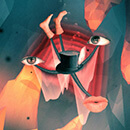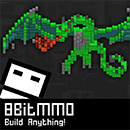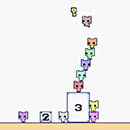![Business Day 2015.9.17[Thu]-18[Fri] Public Day 2015.9.19[Sat]-20[Sun] @ Makuhari Messe](/tgs/2015/en/common/images/sp_date_en.png)

Cooperation by:International Game Developers Association Japan Chapter(IDGA Japan)
SENSE OF WONDER NIGHT 2015
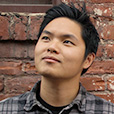
Kyoto
Eddie Lee
|2013 Best Arts Award
1What's your background in making games?
I've worked before in a studio in Kyoto, Japan called Q-Games where I worked on a few titles including Pixeljunk 4am, NomNomGalaxy and Tomorrow's Children.. I've since left the studio and started my own studio based in Los Angeles called Funktronic Labs.
2How much time did you spend working on the game?
I've spent several months developing "Kyoto". During the duration of the development, the concept and mechanics have evolved drastically.
3How did you come up with the concept?
The game "Kyoto" was a homage to the beautiful city that I've lived in. When I first moved there, I was so in awe of the beauty and majesty of the city that I wanted to pay homage to it in the only way I knew how -- which was to make a interactive game experience out of it!
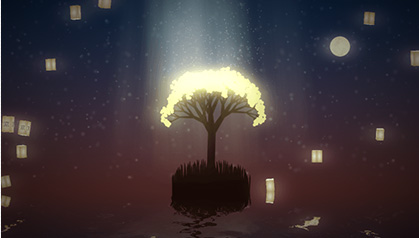
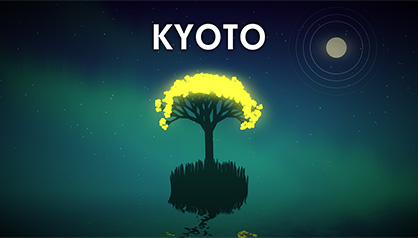
4What development tools did you use?
We used our own custom engine called "FunkEngine". It is a C++/OpenGL based engine that we've used to develop other titles like Collider and Nova-111.
5What were the significant changes from the "old buggy prototype"
you made a year ago?
Alot of usability testing to make the puzzle mechanics a bit more clear. Also alot of brushing up on the visuals.
6Have you sold or released the game of your presentation? How did it go?
Let us know what it has gone since then.
The game is released publicly for free. Since then, it has been suprisingly well-received and been show in various museums/exhibitions around the world.
7What is your goal as a game developer?
To create meaningful interactive experiences through the power of games and other interactive technologies.
8Please send a message to game developers who is joining SOWN
with his game!
Experiment and be free! There is still so much to explore. :)

- Miegakure
- by Marc ten Bosch|2014 Best Experimental Game Award
I had the idea for a hyper-dimensional game in college, maybe around 2005? When you program a 3D game, every object’s position is represented using three numbers (usually called x, y and z), but that concept easily generalizes.
- Mirage
- by Mario von Rickenbach|2013 Best Experimental Game Awards
Mirage was first of all an experiment with the goal to create an interesting character. From that starting point I started developing the world and the visual style around it.
- 8BitMMO
- by Robby Zinchak|2014 Best Technological Game Award
Ultima Online was the first MMO I played when I grew up. It was very impressive to see so many players all across the world play the same game! I wanted to be able to build the world together with my friends. I began building early builds of a game that allowed multiple people to build in the world together. It was very basic, but even early on it was fun to build together.
- PICOLECITTA
- by TECO|2014 Best Presentation Award
I frequently played video games with my friends and family. In that setting, the question that was always in the back of my mind was whether there was a game that more people could enjoy playing together.



![TOKYO GAME SHOW 2015
Business Day 2015.9.17[Thu]-18[Fri] Public Day 2015.9.19[Sat]-20[Sun] @ Makuhari Messe](/tgs/2015/en/common/images/maintitle_en.png)
